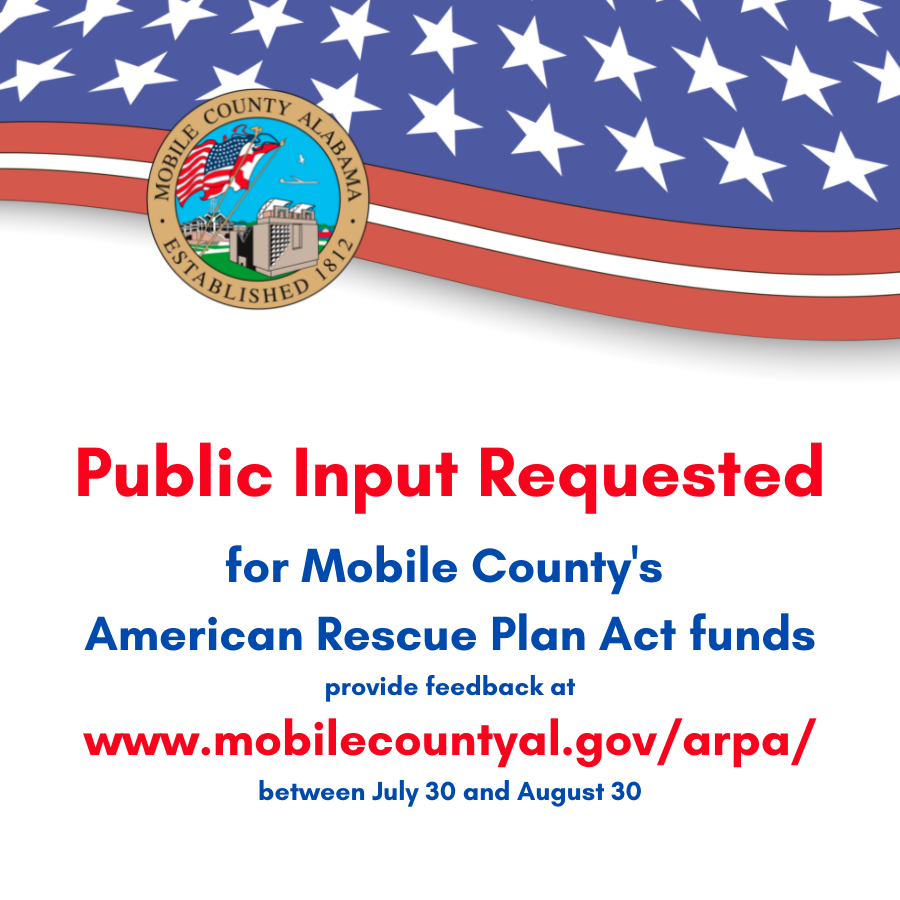Mobile County Commissioners Seek Public Input for American Rescue Plan Act Dollars
Posted on: Jul 30th, 2021 | AnnouncementsPress ReleasesFeatured News

MOBILE COUNTY, Ala. – Commissioners Merceria Ludgood, Connie Hudson and Randall Dueitt seek public input as they work on a plan for Mobile County’s approximately $80 million American Rescue Plan Act allocation.
Mobile County residents can review information about the American Rescue Plan Act’s goal and eligible uses as well as provide their feedback for the Commissioners at www.mobilecountyal.gov/arpa/
The online form provides open-ended comment boxes that solicit general recommendations, suggestions and ideas the public would like to share with Commissioners in advance of this significant investment in Mobile County. The Mobile County Commission seeks comment only; it is not accepting applications for funding through this form. The comment form will remain open until Aug. 30.
The $350 billion American Rescue Plan Act was signed into law by the President of the United States on March 11, 2021. It represents the single largest investment the U.S. has made to address domestic priorities. Guidelines were published in May 2021. Preliminary expenditure categories are due to the U.S. Department of the Treasury on August 31, 2021. Following that submission, funding plans will then be developed and approved by the Mobile County Commission. Funds must be obligated by 2024 and spent by 2026.
As explained in this Department of the Treasury Fact Sheet, the goal of the American Rescue Plan Act of 2021 is to help all levels of government respond to the COVID-19 emergency and its economic impacts by:
- Supporting urgent COVID-19 response efforts to continue to decrease the spread of the virus and bring the pandemic under control;
- Replacing lost public sector revenue to strengthen support for vital public services and help retain jobs;
- Supporting immediate economic stabilization for households and businesses; and,
- Addressing systemic public health and economic challenges that have contributed to the unequal impact of the pandemic on certain populations.
The guidelines provide flexibility for meeting local needs, including support for small businesses, impacted industries like tourism/hospitality and economic development, essential workers, households and the communities hardest hit by the crisis. Funds may also be used to build, maintain, or upgrade water, sewer and broadband infrastructure.